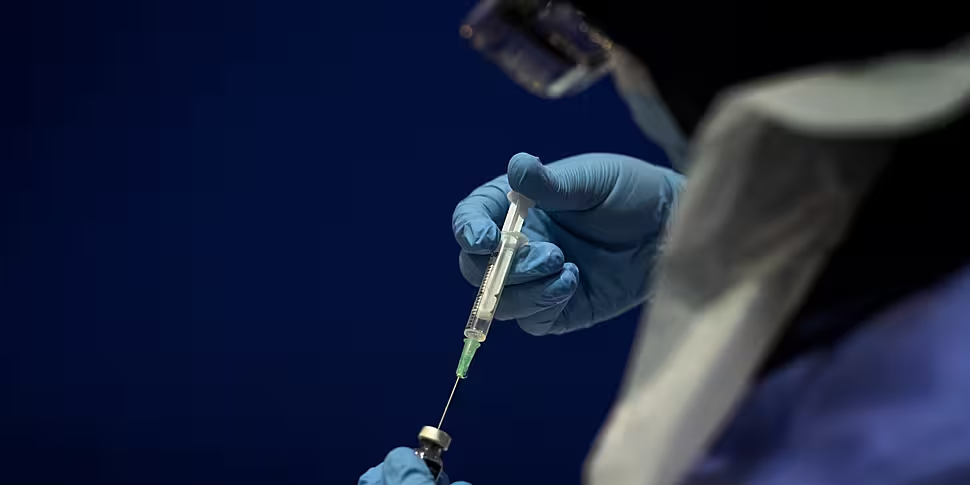Cabinet has signed off on a plan to place nursing home staff and residents at the top of the queue for the coronavirus vaccine.
The COVID-19 Vaccine Allocation Strategy includes 15 phases for the rollout.
The first phase will see the job offered to everyone living in a long-term care facility who is over the age of 65. The first phases noted that all residents and staff on-site should be considered for vaccination at this stage.
Frontline healthcare workers who are in “direct patient contact” will be offered the jab in the second phase, with those aged 70 and over included in the third.
 The Minister for Health Stephen Donnelly TD arriving for Cabinet at Government Buildings, 27-11-2020. Image: Sam Boal/RollingNews
The Minister for Health Stephen Donnelly TD arriving for Cabinet at Government Buildings, 27-11-2020. Image: Sam Boal/RollingNewsPublishing the list this afternoon, the Health Minister Stephen Donnelly said the vaccine would be offered free of charge to everyone in Ireland.
“A key part of the roll-out will be ensuring that those most vulnerable to COVID-19 receive vaccinations first,” he said.
“Given the country’s experience with COVID-19 to date and the risks that vulnerable people and those in frontline roles in the health and social care services continue to face, it is only right that they are prioritised in the allocation of vaccines.
“The government has followed the advice from our leading medical experts.”
The 15-phase rollout is as follows:
- Residents of long-term care facilities over the age of 65. All residents and staff on-site should be considered for vaccination.
- Frontline healthcare workers in direct patient contact roles.
- People aged 70 and older.
- Remaining frontline healthcare workers.
- People aged 65 to 69-years-old.
- Key workers providing services “essential to the vaccination programme".
- People aged 18 – 64 with underlying health conditions.
- Residents of long-term care facilities aged between 18 and 64.
- People aged between 18 and 64, living or working in crowded places.
- Key workers who can’t avoid a high risk of exposure to COVID-19 (food supply, public transport etc.)
- Primary and secondary school staff.
- People aged 55 to 64.
- Those in “occupations important to the functioning of society” – including those working in entertainment and third-level institutions.
- People aged 18 to 54-years-old.
- Children, teenagers and pregnant women.
Minister Donnelly said the apparent success of the vaccine trials to date offers a “beacon of hope after a very difficult year.”
“While some may be tempted to let their guards down now that there are vaccines on the horizon, it is crucially important to continue to follow the public health guidance,” he said.
“COVID-19 is still a deadly disease. Through so much hard work and sacrifice, we now have the lowest 14-day incidence rate of COVID-19 in the EU.
“We are in a good position and we want to keep it like that. Please remember that every single contact counts.”
The rollout strategy will “evolve and adapt” as more detailed information is published on the vaccines and their effectiveness.
Underlying health conditions included in the seventh phase are: “Chronic heart disease, chronic respiratory disease, Type 1 and 2 diabetes; chronic neurological disease; chronic kidney disease; severe obesity; immunosuppression due to disease or treatment and chronic liver disease.”
Ireland has already signed off on Advanced Purchase Agreements with five separate vaccine companies.
- Pfizer/BioNTech: 2.3 million doses
- AstraZeneca/Oxford: 3.3 million doses
- Janssen (Johnson & Johnson): 2.2 million doses
- CureVac: TBC
- Moderna: 880,000 doses









